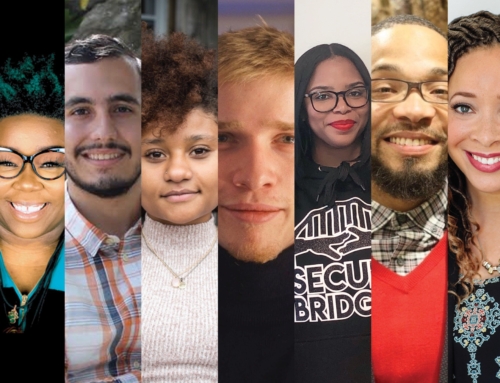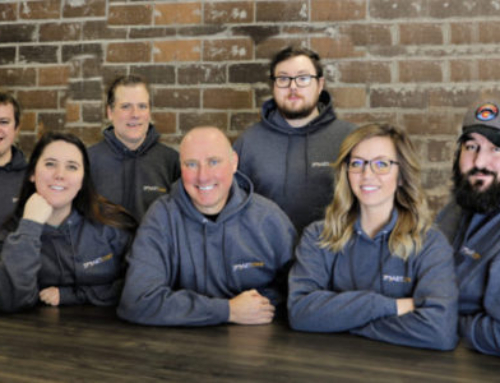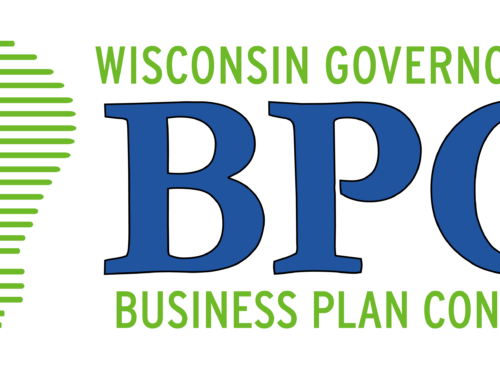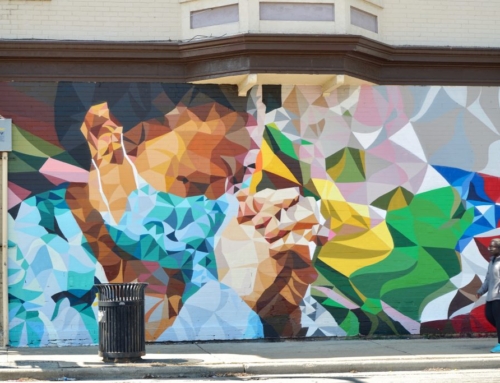With their most recent video premiering on Billboard, the band Reyna is attracting national attention. The pop duo, made up of sisters Victoriah and Hannah Gabriela Banuelos, regularly perform in New York and Los Angeles, but their success isn’t based in either coast—it’s based in Milwaukee.
“Milwaukee has supported us from the beginning of our career. We’ve also worked in LA and New York, and being from Milwaukee makes us unique,” says Vic Banuelos. “We have Summerfest…we have programs like Backline that really propel musicians like us. They pretty much show you how to jumpstart your career.”
They’re not alone. Thanks to a supportive community and organizations like Radio Milwaukee and the Backline accelerator, the city’s recording artists don’t feel the need to leave Wisconsin to make a national impression.
Amplifying local sounds: Radio Milwaukee
It’s difficult to imagine what Milwaukee’s music scene would be like if Radio Milwaukee hadn’t started broadcasting in 2007. The public broadcasting station aims to be a catalyst for creating a better, more inclusive and engaged city by emphasizing local music and community stories. So far, it’s succeeded. The station airs a live interview and performance with different Milwaukee musician every Thursday during its “414 Live” broadcasts. But more importantly, the station plays local acts like Reyna and Klassik right alongside established artists like Lizzo and David Gray.
“We have a unique sound in this city that’s unlike anything else,” says Jordan Lee, the station’s program director. “88nine Radio Milwaukee supports Milwaukee musicians. We play local musicians every hour of every day.”
One Friday each month during the school year, Radio Milwaukee’s Walker’s Point Studio is also home to The Music Lab, a music education program and talent accelerator for area high school students. Founded by Grammy Award–winning singer/songwriter and Milwaukee native Grace Weber, it’s is a place where students can collaborate with each other and learn from music and entertainment industry experts. Each month up to 100 students gather to hear from the featured guest and perform at an open mic for their peers.
Accelerating local talent: Backline
Milwaukee is one of only three cities in the nation to host Backline, a 12-week accelerator program that helps local musicians take their careers to the next level. The other two cities? Cleveland, home to the Rock & Roll Hall of Fame, and Detroit, home to Motown.
Backline Milwaukee is a partnership between Radio Milwaukee and Gener8tor and supported by WEDC. It operates out of Nō Studios, a collaborative workspace, gallery and event space founded by Oscar-winning filmmaker and Milwaukee native John Ridley. Importantly, it’s free to artists—the $20,000 in grant funding each participant receives is not subject to any future residuals, royalties or revenue-sharing agreements.
“We’re very grateful the state is supporting the program. We’ve seen musicians in places like Chicago and Toronto really make this city a hub for creativity and art, and it really creates an opportunity for collaboration between art and other businesses,” says Backline Milwaukee Program Director Mag Rodriguez.
Backline is split into three phases: create, connect and plan. During the create phase, the Backline team connects the participating artists with potential collaborators, such as studios and videographers, as they develop new music. The connect phase connect artists with resources and industry leaders locally, nationally and internationally that can help bolster their careers, including trips to Los Angeles and New York. Finally, artists use the plan phase to work with the Backline team to plan out the next year of their career, with a goal of driving sustainable revenue and heightening their profile.
Like Reyna, Klassik was part of Backline Milwaukee’s spring 2019 cohort, and continues to build a successful career that includes regular rotation on Radio Milwaukee and touring for national acts along with Reyna. In February, the self-described “eclectic rapper-singer-producer-musician” was the Music Lab’s featured guest. “This city is rich in history. It’s rich in culture. And music I think is one of the most powerful things to bring the different sides, the different stories, of the cities together,” he says.








FOLLOW US